In today's digital world, protecting consumer data has never been more crucial, and many organizations are committed to ensuring your privacy and security. With an increasing number of data breaches and privacy concerns, it's essential for consumers to feel confident that their personal information is being handled responsibly. This letter template serves as a reassurance, outlining the measures that organizations can take to safeguard your data and maintain transparency. Join us as we delve deeper into the steps you can take and learn more about how your information can be protected effectively!
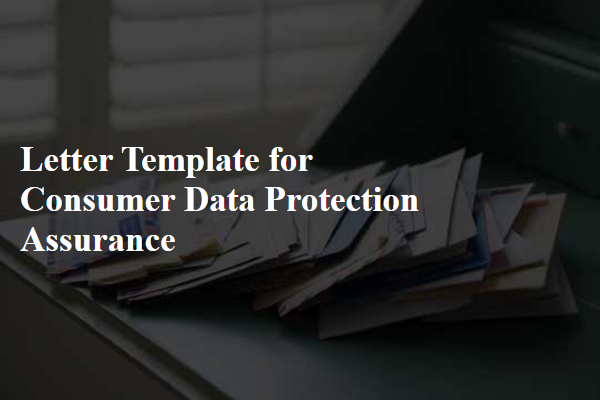
Clear Identification of Data Protection Policy
The Data Protection Policy comprehensively outlines the measures taken to ensure consumer data privacy and security. It specifies the collection of personal information, such as names, email addresses, phone numbers, and financial details, only with explicit consent from users, adhering to regulations like the General Data Protection Regulation (GDPR) established in the European Union. The policy highlights the implementation of encryption techniques to safeguard sensitive information during transmission and storage. Personal data is retained only for necessary periods as per business requirements, followed by secure deletion procedures. Additionally, it emphasizes consumer rights, including access to personal data and the ability to request corrections or deletions, ensuring transparency and trust in the handling of personal information. Compliance audits are regularly conducted, reinforcing the commitment to data integrity and consumer privacy.
Details of Data Collection and Usage
Consumer data protection assurance emphasizes transparency in data collection and usage practices. Organizations commonly aggregate personal data, including names, email addresses, and purchase histories, to enhance user experiences and tailor services. Data usage may encompass targeted marketing efforts and personalized recommendations based on browsing habits. Security measures, such as encryption protocols, are critical to safeguarding sensitive information, preventing unauthorized access, and ensuring compliance with regulations like the General Data Protection Regulation (GDPR). Regular audits and user consent procedures are vital components in maintaining consumer trust and demonstrating a commitment to ethical data practices.
Consumer Rights and Access to Information
Consumer data protection is a critical aspect of maintaining trust between businesses and individuals in today's digital landscape. Companies, such as those in the United States, must adhere to regulations like the California Consumer Privacy Act (CCPA) in 2018, ensuring transparency regarding the collection and use of personal information. This law grants consumers specific rights, including the right to access their data, knowledge of how their information is shared, and the ability to request deletion of their data. Additionally, businesses must implement robust security measures to safeguard sensitive information against breaches, such as the 2020 Twitter hack, which exposed vulnerabilities in user account data. Effective consumer data protection not only enhances compliance but also fosters a culture of respect for user privacy across various industries, ultimately leading to improved customer relationships and loyalty.
Security Measures and Protocols
Security measures and protocols for consumer data protection encompass various strategies and technologies employed to ensure the integrity, confidentiality, and availability of personal information. Organizations implement encryption methods, such as Advanced Encryption Standard (AES) to safeguard data both at rest and in transit. Regular security audits and vulnerability assessments assist in identifying weaknesses in systems. Compliance with regulations, such as the General Data Protection Regulation (GDPR) in the European Union, requires organizations to adopt stringent data protection practices. Multi-factor authentication (MFA) protocols enhance security by requiring multiple forms of verification before granting access. Data breach response plans, which outline steps to mitigate damage in case of unauthorized access, serve as critical components in defending consumer information. Ongoing employee training programs on cybersecurity awareness help cultivate a culture of data protection within organizations, reducing the risk of human error.
Contact Information for Data Concerns
Consumer data protection assurance plays a crucial role in maintaining trust with clients in various industries. Contact information for data concerns should include specific departmental emails, like compliance@companyname.com, and dedicated hotlines, such as 1-800-555-0199, prominently displayed on the company's website. Each entry should specify response time expectations, typically within 48 hours, to address privacy-related inquiries effectively. Encouraging consumers to report any data breaches or suspicious activities directly through secure online forms can enhance transparency and responsiveness. Clearly defined policies regarding data retention, deletion processes, and user rights under regulations like GDPR (General Data Protection Regulation) should be easily accessible, ensuring that clients feel secure and informed about their personal information safety.

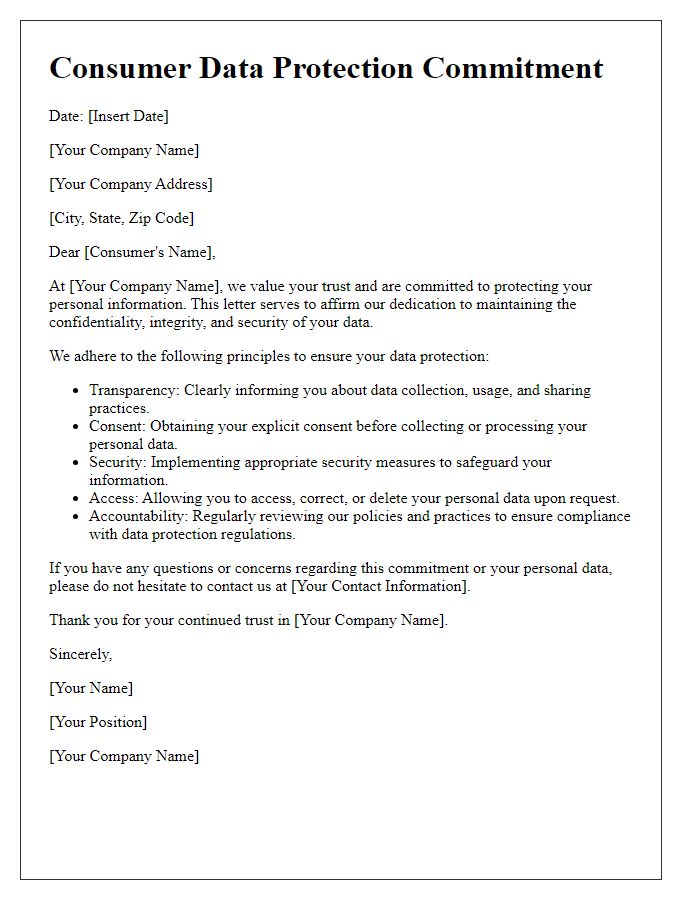
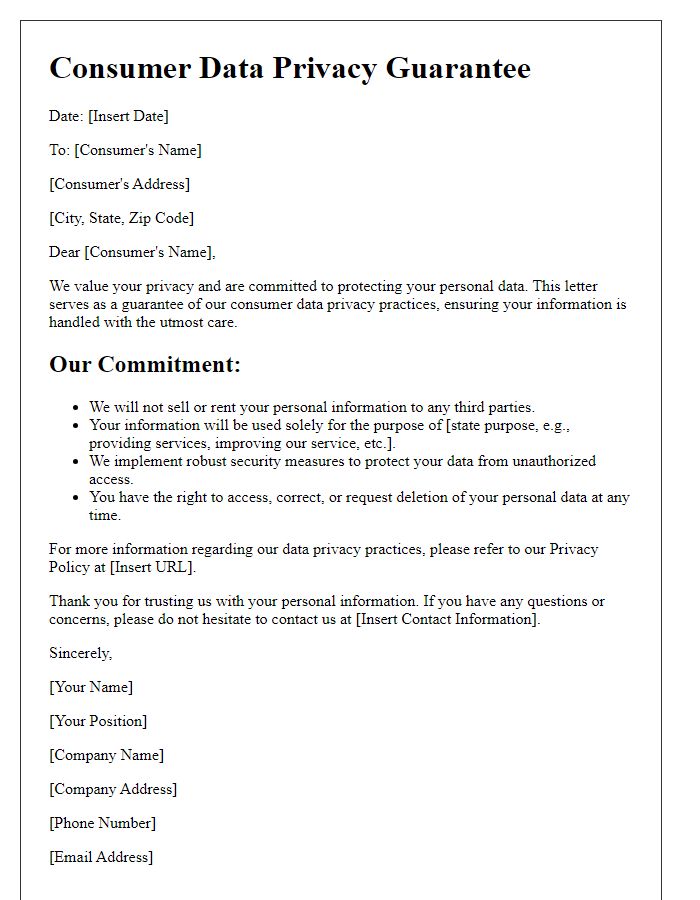
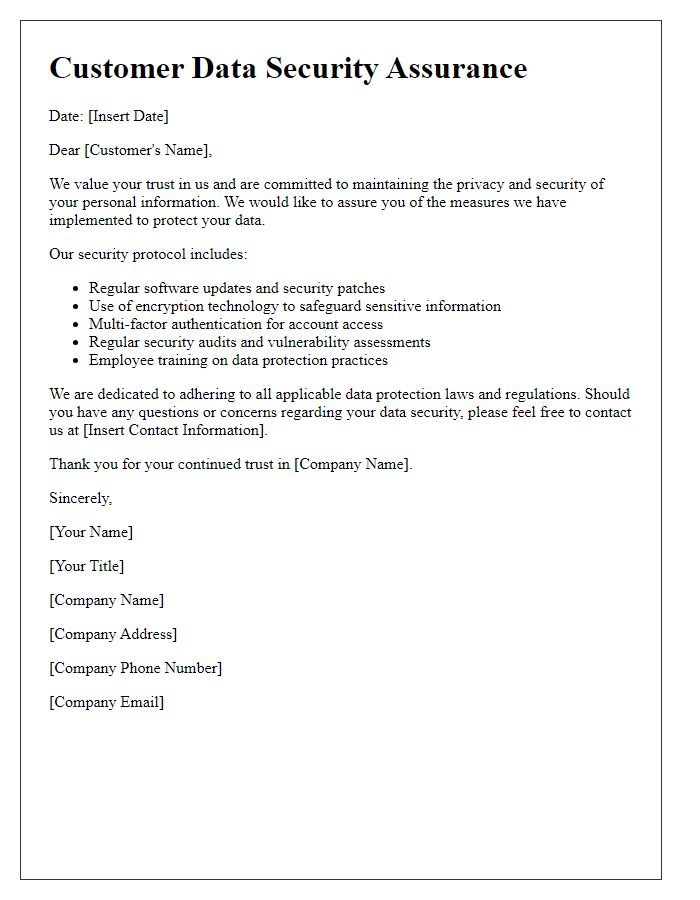
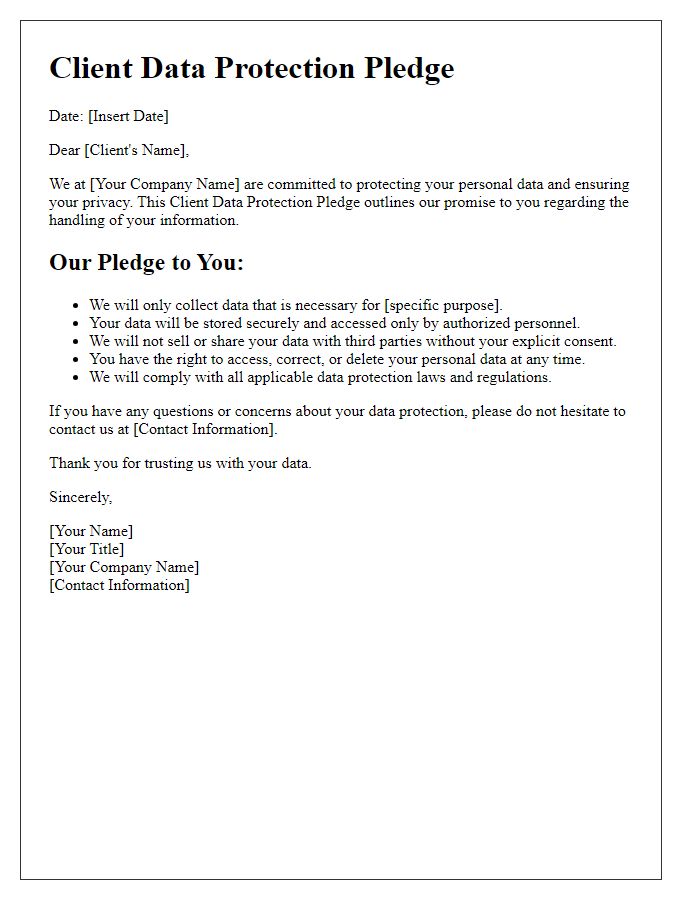
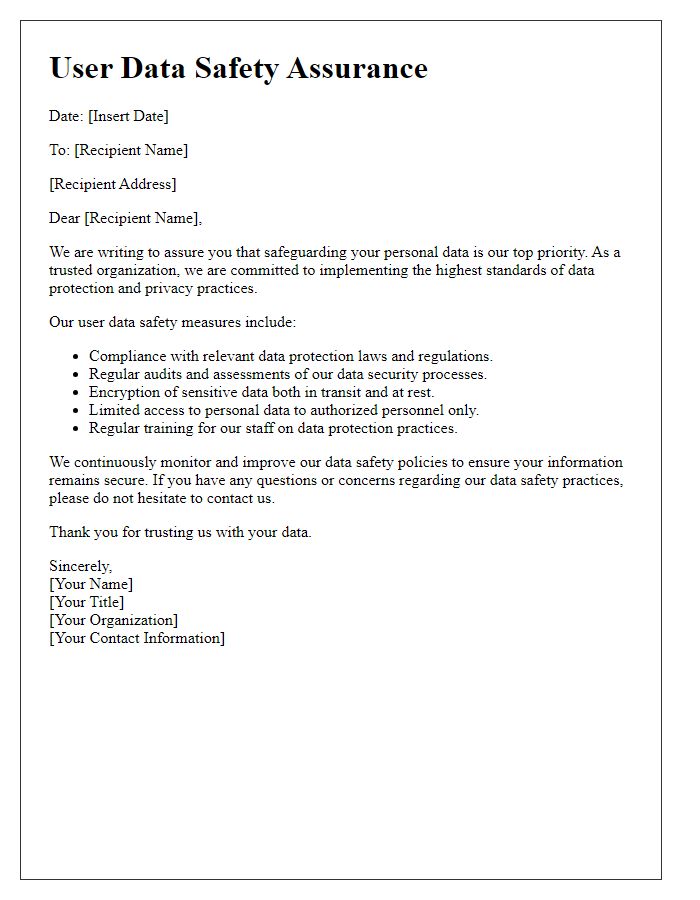
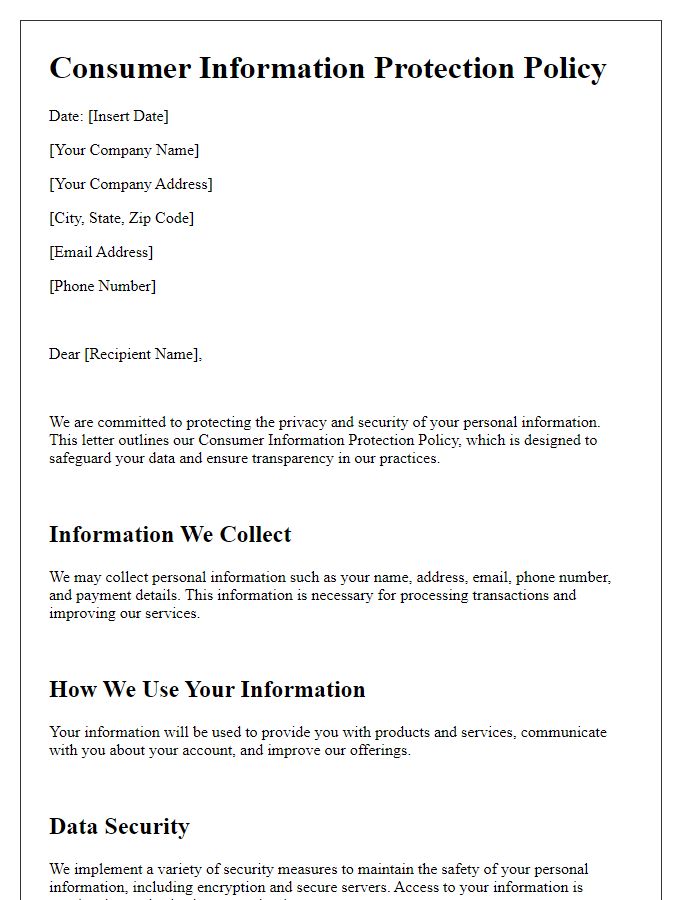
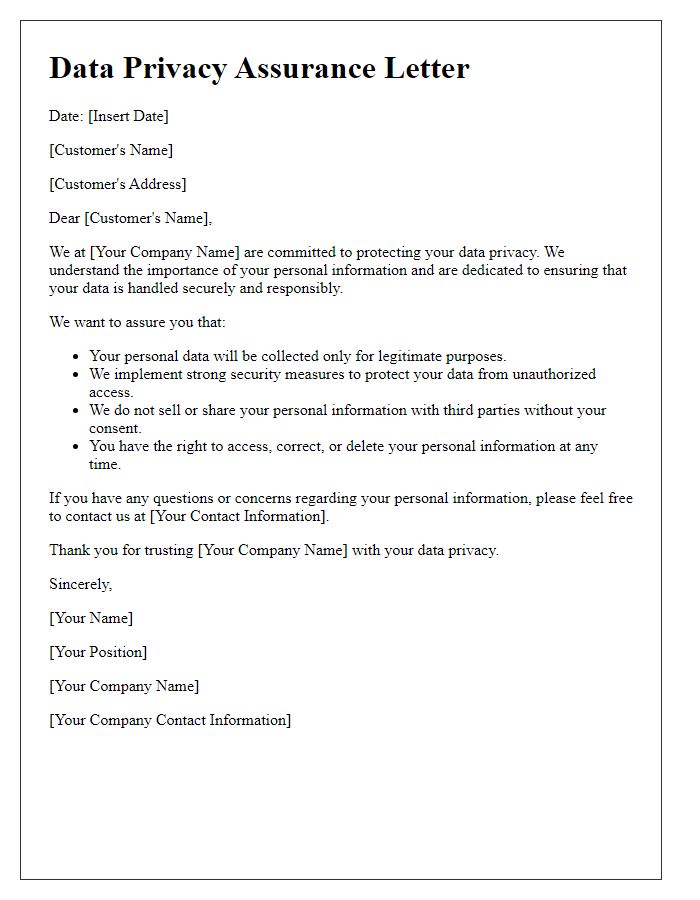
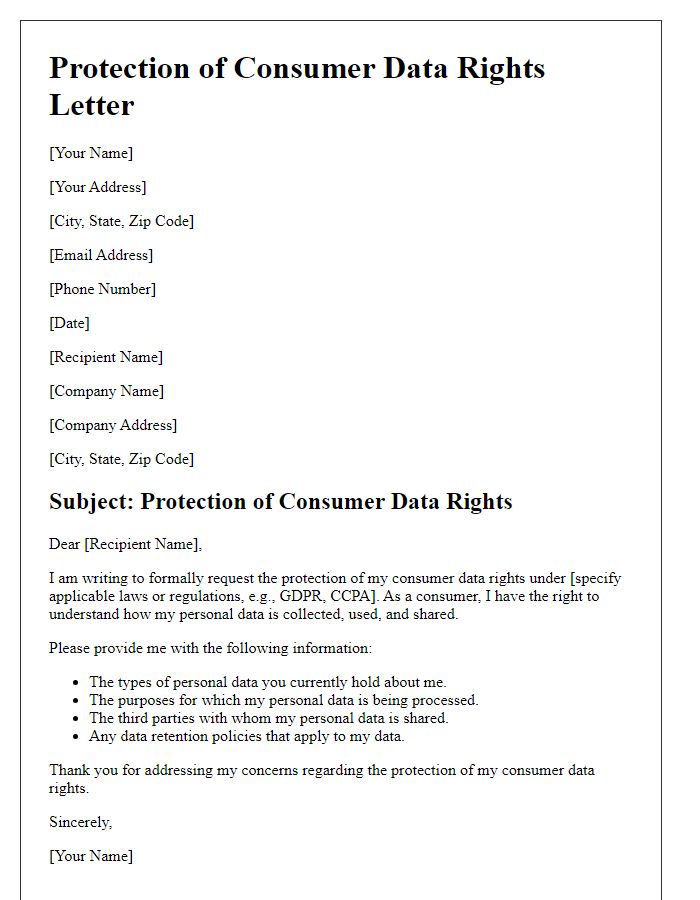
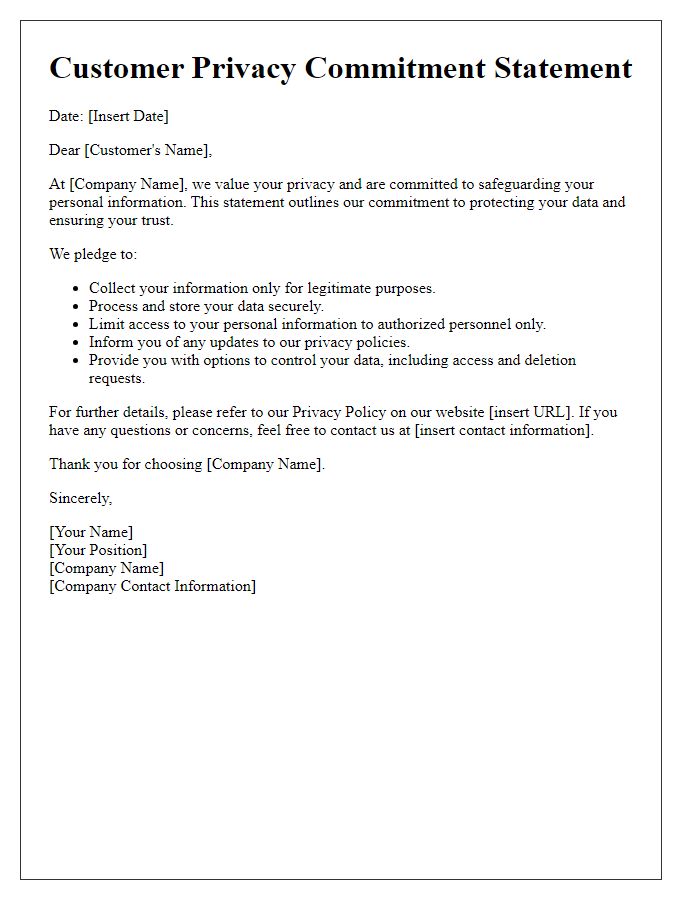
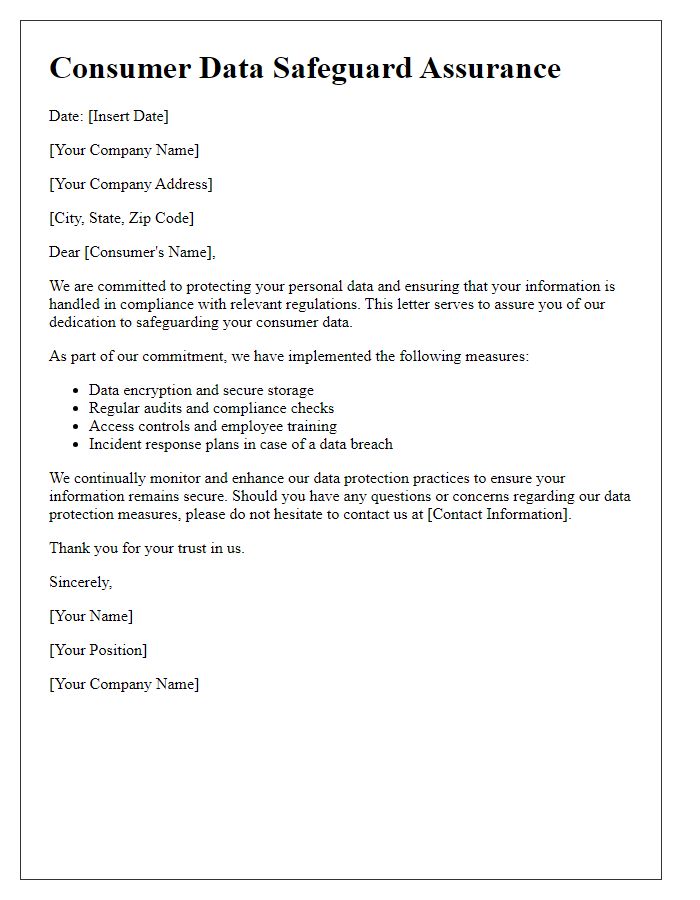


Comments